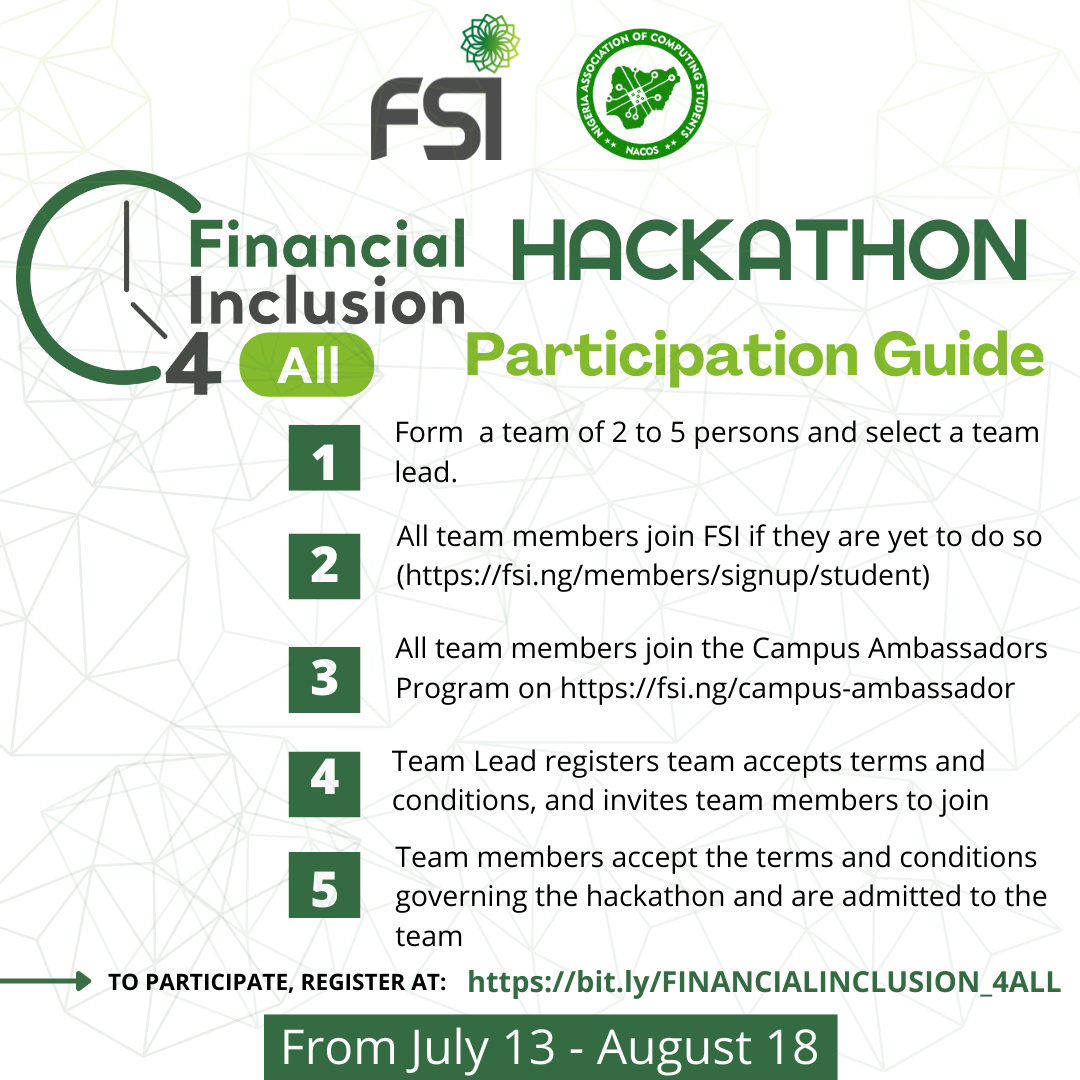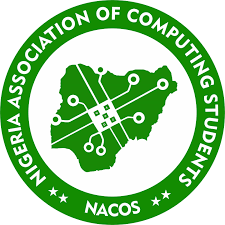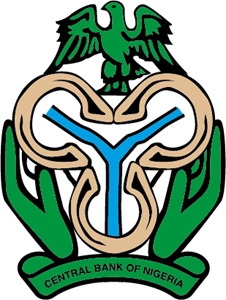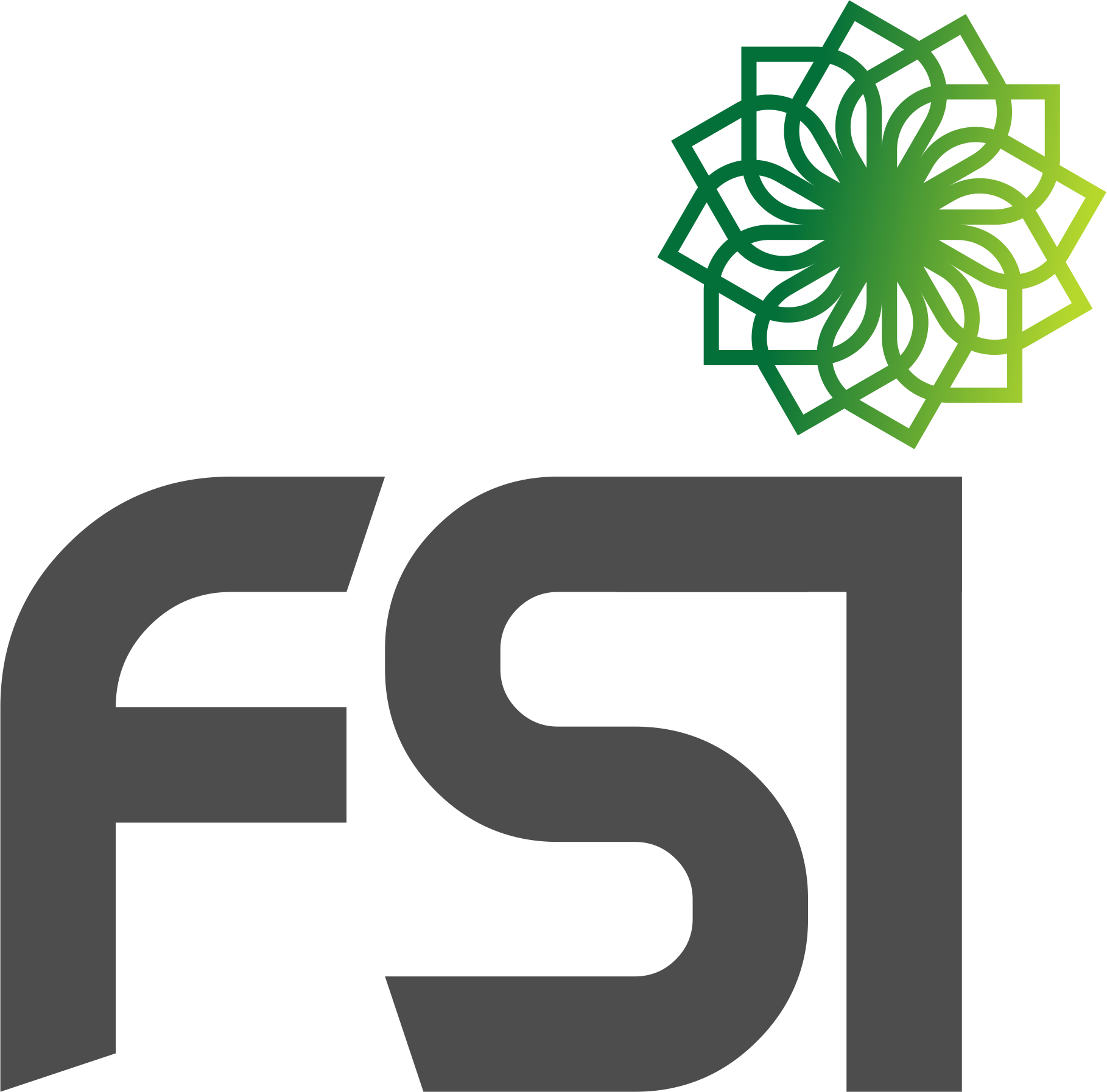A virtual and physical Innovation Challenge organized by FSI and the Nigeria Association of Computing Students (NACOS) to address financial inclusion challenges in the health, agriculture, trade and commerce, and energy sectors of the economy.

‘Financial Inclusion for All’ Problem Statement
- IDEAL:
Our desired state is to see a fully digitalized Nigerian economy. Hence, the value chain of some key sectors of the economy such as agriculture, health, transportation, energy, and trade & commerce are maximized, fully integrated, and digitalized thereby offering innovative financial inclusion products to the poor and vulnerable. Furthermore, financial service providers offer products that are without social, language, literacy, etc. We intend to see the financial inclusion rate in Nigeria increase to 90% through the adoption of innovative financial services products in the agriculture, health, trade & commerce, energy, and transportation sectors of the Nigerian economy.
- REALITY:
A publication by Daily Post in March 2022, referred to a statement made by the Executive Vice-Chairman, Nigerian Communication Commission (NCC), Prof. Umar Danbatta, which indicated that there were at least 195.4 million phone subscribers in the country and 141 million internet subscribers as of December 2021. Hence, the proliferation of mobile phones has leveled the communication barrier in Nigeria. However, EFInA’s report as of 2020 indicated that the financial inclusion rate in Nigeria was 64%. This report implies that 38 million Nigerians are financially excluded. Hence, a good number of Nigerians transacting daily are dealing informally and largely with cash. Furthermore, those who have access to a bank account also are underserved and are still not transacting digitally despite the mobile infrastructure which is pivotal to the Nigerian digital economy
- CONSEQUENCES:
According to a NIBSS report in January 2022, the total number of BVNs in the country was 52.1 million. If financial products are not diversified in the economy to speak to the needs of people in the informal sector, the possibility of achieving the financial inclusion rate of 80% in a short time is slim. Additionally, ecosystem development and integration that engenders growth are at potential risk. The Guardian in an online report of February 2021 referred to a report of the International Monetary Fund (IMF) that indicated that 80% of the Nigerian population work in the informal economy and their activities are not included in the Gross Domestic Product (GDP) of the country. This impedes national planning and aids revenue leakages.
- PROPOSAL:
An innovative financial inclusion that speaks largely to the informal sector players (individuals, retailers, and merchants) in the transportation, agricultural, health, trade and commerce, and energy sectors of the economy. The solution will address the needs of the informal players and provide access to inclusive and affordable financial products such as savings, insurance, payments, remittance, and credit. The integration of the value chain markets through inclusive channels will be a plus.
Your solution should create a financial inclusion product such as savings, insurance, payments, remittance, or credit. Your financial inclusion product should address the needs of the poor, vulnerable, and women. It should address 1 or 2 of the following areas:
- Transportation sector - Reduce cash transactions and integrates the value chain transactions within the transportation sector.
- Trade & Commerce- Simple, easy-to-use, and affordable digital financial services in trade and commence thereby making it a lifestyle for merchants and their customers without access or with social, literacy, and cultural barriers to conduct business transactions digitally and seamlessly.
- Healthcare- Digitizes access to healthcare services, provides on-demand services, and integrates the value chain for the informal markets.
- Energy- Digitize the value chain of the informal players in the energy market, including renewable energy.
- Agriculture- Digitize the agricultural value chain as it affects small-scale farmers and reduces the need for cash transactions
- To discover tech. talents in tertiary institutions.
- To create a pipeline of innovation FinTech Company.
- To enhance financial Inclusion in transportation, health, energy, agriculture, and insurance sections.
Schedules
IDEATHON ROUND
START DATE
END DATE
‘Financial Inclusion for All’ Problem Statement
- IDEAL:
Our desired state is to see a fully digitalized Nigerian economy. Hence, the value chain of some key sectors of the economy such as agriculture, health, transportation, energy, and trade & commerce are maximized, fully integrated, and digitalized thereby offering innovative financial inclusion products to the poor and vulnerable. Furthermore, financial service providers offer products that are without social, language, literacy, etc. We intend to see the financial inclusion rate in Nigeria increase to 90% through the adoption of innovative financial services products in the agriculture, health, trade & commerce, energy, and transportation sectors of the Nigerian economy.
- REALITY:
A publication by Daily Post in March 2022, referred to a statement made by the Executive Vice-Chairman, Nigerian Communication Commission (NCC), Prof. Umar Danbatta, which indicated that there were at least 195.4 million phone subscribers in the country and 141 million internet subscribers as of December 2021. Hence, the proliferation of mobile phones has leveled the communication barrier in Nigeria. However, EFInA’s report as of 2020 indicated that the financial inclusion rate in Nigeria was 64%. This report implies that 38 million Nigerians are financially excluded. Hence, a good number of Nigerians transacting daily are dealing informally and largely with cash. Furthermore, those who have access to a bank account also are underserved and are still not transacting digitally despite the mobile infrastructure which is pivotal to the Nigerian digital economy
- CONSEQUENCES:
According to a NIBSS report in January 2022, the total number of BVNs in the country was 52.1 million. If financial products are not diversified in the economy to speak to the needs of people in the informal sector, the possibility of achieving the financial inclusion rate of 80% in a short time is slim. Additionally, ecosystem development and integration that engenders growth are at potential risk. The Guardian in an online report of February 2021 referred to a report of the International Monetary Fund (IMF) that indicated that 80% of the Nigerian population work in the informal economy and their activities are not included in the Gross Domestic Product (GDP) of the country. This impedes national planning and aids revenue leakages.
- PROPOSAL:
An innovative financial inclusion that speaks largely to the informal sector players (individuals, retailers, and merchants) in the transportation, agricultural, health, trade and commerce, and energy sectors of the economy. The solution will address the needs of the informal players and provide access to inclusive and affordable financial products such as savings, insurance, payments, remittance, and credit. The integration of the value chain markets through inclusive channels will be a plus.
Your solution should create a financial inclusion product such as savings, insurance, payments, remittance, or credit. Your financial inclusion product should address the needs of the poor, vulnerable, and women. It should address 1 or 2 of the following areas:
- Transportation sector - Reduce cash transactions and integrates the value chain transactions within the transportation sector.
- Trade & Commerce- Simple, easy-to-use, and affordable digital financial services in trade and commence thereby making it a lifestyle for merchants and their customers without access or with social, literacy, and cultural barriers to conduct business transactions digitally and seamlessly.
- Healthcare- Digitizes access to healthcare services, provides on-demand services, and integrates the value chain for the informal markets.
- Energy- Digitize the value chain of the informal players in the energy market, including renewable energy.
- Agriculture- Digitize the agricultural value chain as it affects small-scale farmers and reduces the need for cash transactions
MOCKUP ROUND
START DATE
END DATE
‘Financial Inclusion for All’ Problem Statement
- IDEAL:
Our desired state is to see a fully digitalized Nigerian economy. Hence, the value chain of some key sectors of the economy such as agriculture, health, transportation, energy, and trade & commerce are maximized, fully integrated, and digitalized thereby offering innovative financial inclusion products to the poor and vulnerable. Furthermore, financial service providers offer products that are without social, language, literacy, etc. We intend to see the financial inclusion rate in Nigeria increase to 90% through the adoption of innovative financial services products in the agriculture, health, trade & commerce, energy, and transportation sectors of the Nigerian economy.
- REALITY:
A publication by Daily Post in March 2022, referred to a statement made by the Executive Vice-Chairman, Nigerian Communication Commission (NCC), Prof. Umar Danbatta, which indicated that there were at least 195.4 million phone subscribers in the country and 141 million internet subscribers as of December 2021. Hence, the proliferation of mobile phones has leveled the communication barrier in Nigeria. However, EFInA’s report as of 2020 indicated that the financial inclusion rate in Nigeria was 64%. This report implies that 38 million Nigerians are financially excluded. Hence, a good number of Nigerians transacting daily are dealing informally and largely with cash. Furthermore, those who have access to a bank account also are underserved and are still not transacting digitally despite the mobile infrastructure which is pivotal to the Nigerian digital economy
- CONSEQUENCES:
According to a NIBSS report in January 2022, the total number of BVNs in the country was 52.1 million. If financial products are not diversified in the economy to speak to the needs of people in the informal sector, the possibility of achieving the financial inclusion rate of 80% in a short time is slim. Additionally, ecosystem development and integration that engenders growth are at potential risk. The Guardian in an online report of February 2021 referred to a report of the International Monetary Fund (IMF) that indicated that 80% of the Nigerian population work in the informal economy and their activities are not included in the Gross Domestic Product (GDP) of the country. This impedes national planning and aids revenue leakages.
- PROPOSAL:
An innovative financial inclusion that speaks largely to the informal sector players (individuals, retailers, and merchants) in the transportation, agricultural, health, trade and commerce, and energy sectors of the economy. The solution will address the needs of the informal players and provide access to inclusive and affordable financial products such as savings, insurance, payments, remittance, and credit. The integration of the value chain markets through inclusive channels will be a plus.
Your solution should create a financial inclusion product such as savings, insurance, payments, remittance, or credit. Your financial inclusion product should address the needs of the poor, vulnerable, and women. It should address 1 or 2 of the following areas:
- Transportation sector - Reduce cash transactions and integrates the value chain transactions within the transportation sector.
- Trade & Commerce- Simple, easy-to-use, and affordable digital financial services in trade and commence thereby making it a lifestyle for merchants and their customers without access or with social, literacy, and cultural barriers to conduct business transactions digitally and seamlessly.
- Healthcare- Digitizes access to healthcare services, provides on-demand services, and integrates the value chain for the informal markets.
- Energy- Digitize the value chain of the informal players in the energy market, including renewable energy.
- Agriculture- Digitize the agricultural value chain as it affects small-scale farmers and reduces the need for cash transactions
PHYSICAL HACKATHON-MVP STAGE
START DATE
END DATE
‘Financial Inclusion for All’ Problem Statement
- IDEAL:
Our desired state is to see a fully digitalized Nigerian economy. Hence, the value chain of some key sectors of the economy such as agriculture, health, transportation, energy, and trade & commerce are maximized, fully integrated, and digitalized thereby offering innovative financial inclusion products to the poor and vulnerable. Furthermore, financial service providers offer products that are without social, language, literacy, etc. We intend to see the financial inclusion rate in Nigeria increase to 90% through the adoption of innovative financial services products in the agriculture, health, trade & commerce, energy, and transportation sectors of the Nigerian economy.
- REALITY:
A publication by Daily Post in March 2022, referred to a statement made by the Executive Vice-Chairman, Nigerian Communication Commission (NCC), Prof. Umar Danbatta, which indicated that there were at least 195.4 million phone subscribers in the country and 141 million internet subscribers as of December 2021. Hence, the proliferation of mobile phones has leveled the communication barrier in Nigeria. However, EFInA’s report as of 2020 indicated that the financial inclusion rate in Nigeria was 64%. This report implies that 38 million Nigerians are financially excluded. Hence, a good number of Nigerians transacting daily are dealing informally and largely with cash. Furthermore, those who have access to a bank account also are underserved and are still not transacting digitally despite the mobile infrastructure which is pivotal to the Nigerian digital economy
- CONSEQUENCES:
According to a NIBSS report in January 2022, the total number of BVNs in the country was 52.1 million. If financial products are not diversified in the economy to speak to the needs of people in the informal sector, the possibility of achieving the financial inclusion rate of 80% in a short time is slim. Additionally, ecosystem development and integration that engenders growth are at potential risk. The Guardian in an online report of February 2021 referred to a report of the International Monetary Fund (IMF) that indicated that 80% of the Nigerian population work in the informal economy and their activities are not included in the Gross Domestic Product (GDP) of the country. This impedes national planning and aids revenue leakages.
- PROPOSAL:
An innovative financial inclusion that speaks largely to the informal sector players (individuals, retailers, and merchants) in the transportation, agricultural, health, trade and commerce, and energy sectors of the economy. The solution will address the needs of the informal players and provide access to inclusive and affordable financial products such as savings, insurance, payments, remittance, and credit. The integration of the value chain markets through inclusive channels will be a plus.
Your solution should create a financial inclusion product such as savings, insurance, payments, remittance, or credit. Your financial inclusion product should address the needs of the poor, vulnerable, and women. It should address 1 or 2 of the following areas:
- Transportation sector - Reduce cash transactions and integrates the value chain transactions within the transportation sector.
- Trade & Commerce- Simple, easy-to-use, and affordable digital financial services in trade and commence thereby making it a lifestyle for merchants and their customers without access or with social, literacy, and cultural barriers to conduct business transactions digitally and seamlessly.
- Healthcare- Digitizes access to healthcare services, provides on-demand services, and integrates the value chain for the informal markets.
- Energy- Digitize the value chain of the informal players in the energy market, including renewable energy.
- Agriculture- Digitize the agricultural value chain as it affects small-scale farmers and reduces the need for cash transactions
Judges

Aituaz Kola-Oladejo
Executive Director, FSI

Uade Ahimie
Founder and Principal Consultant at Accounting Lab Limited.

Binta Moustafa
Founder, 100 women in Tech

Eniola Boluogun
Head Business Transformation & Innovation at AXA Mansard Insurance Plc

WOLE ODETAYO
CO-FOUNDER

Gbolahan Alli
Chief Technology Officer, Devos
Sponsors




Partners




Teams
74
-
Farm Riders
2 Team Members
-
Locapay
3 Team Members
-
Team Dono
5 Team Members
-
Digi-clinic
3 Team Members
-
Simcare
3 Team Members
-
Code daily
2 Team Members
-
ROOT CARE
4 Team Members
-
WiSELiGHT
2 Team Members
-
Mafuztech solution
3 Team Members
-
Mujee
3 Team Members
-
Team Techies
4 Team Members
-
Drastic
5 Team Members
-
muryafamilies
5 Team Members
-
Startechies
4 Team Members
-
Finders Market
5 Team Members
-
Minshawee
3 Team Members
-
Masodangi
2 Team Members
-
e-Gardens
5 Team Members
-
Okin-unique
3 Team Members
-
BetaLife
7 Team Members
-
ikanplus
2 Team Members
-
Knopee
3 Team Members
-
TechieSquad
2 Team Members
-
Rocket ideas
2 Team Members
-
Team T
2 Team Members
-
Eco-cred
4 Team Members
-
Team Neil
4 Team Members
-
Tech giantzzz
2 Team Members
-
Green Argiculture
3 Team Members
-
NewAge
2 Team Members
-
StemHub
3 Team Members
-
TranSave
2 Team Members
-
Sanwopay
3 Team Members
-
DigiNaija
5 Team Members
-
Tecnify
3 Team Members
-
CYBERBOTICS
5 Team Members
-
Acceede
5 Team Members
-
sauki healthcare
4 Team Members
-
Indigenous Labs
3 Team Members
-
Explore
5 Team Members
-
Wire_me
2 Team Members
-
Horizon
2 Team Members
-
Syticks
3 Team Members
-
Roomstack
3 Team Members
-
Team Inclusive
4 Team Members
-
Hackershigh
2 Team Members
-
Sagato
5 Team Members
-
Carfunt
2 Team Members
-
Innovo
5 Team Members
-
Two X And O
2 Team Members
-
SmartLife
3 Team Members
-
Team Agrigram
2 Team Members
-
FIH HUB
4 Team Members
-
Smart Devs
3 Team Members
-
Cyber Wizards
4 Team Members
-
Hack-all
3 Team Members
-
BuynBulk
5 Team Members
-
Pious
2 Team Members
-
Team Abuad
2 Team Members
-
FASAHA
2 Team Members
-
Yolde-pate youth forum
2 Team Members
-
Team Swift
3 Team Members
-
Trowpass
2 Team Members
-
Team Transvectio
3 Team Members
-
Team Gistr
3 Team Members
-
Test
4 Team Members
-
ATBU
5 Team Members
-
MAK S2B
2 Team Members
-
Team Builders
3 Team Members
-
Think Tanks
2 Team Members
-
Team Ambrose
4 Team Members
-
Team Safepay
3 Team Members
-
THE ERICS
4 Team Members
-
Team Getters
3 Team Members
The prizes and awards to be awarded for the hackathon are as follows:
1st - ₦1,000,000
2nd - ₦750,000
3rd - ₦500, 000
Don't have Account? Sign up




